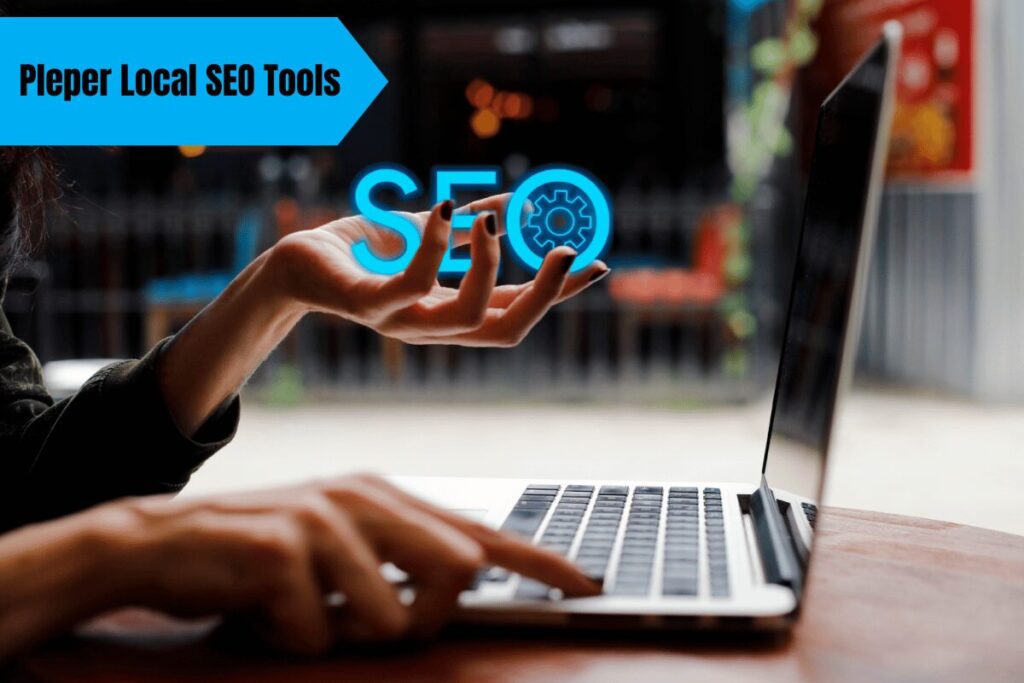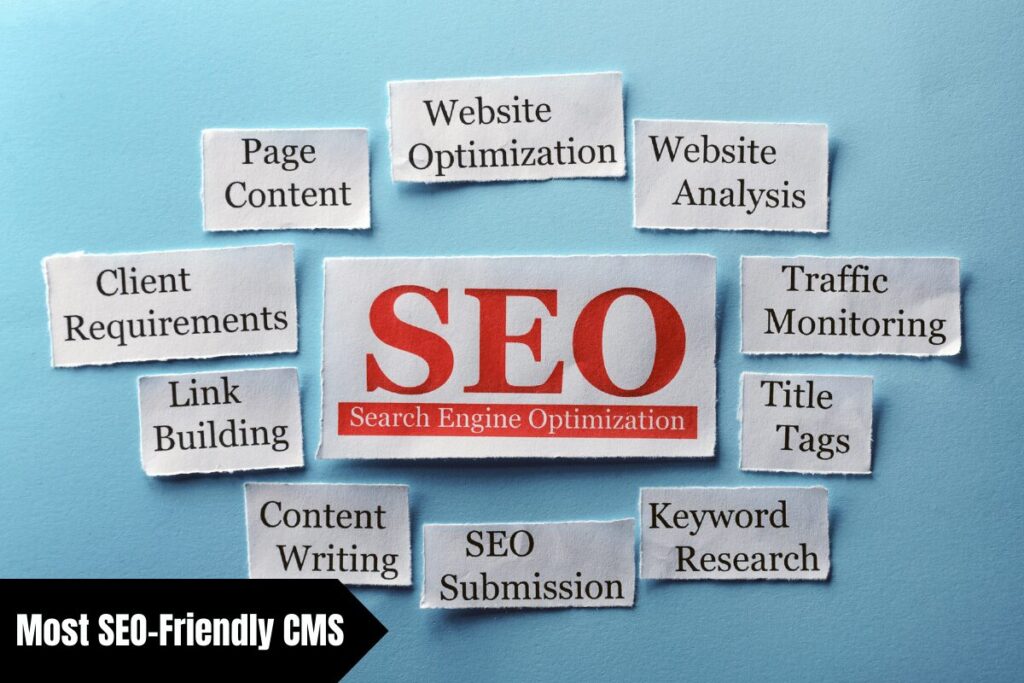
Maximize Your Local SEO Success with PlePer Tools | Sitelinx Agency
BlogHey There, Local SEO Enthusiasts! Let’s Talk PlePer Tools (And Why They’re a Game-Changer) So, you’ve got a local business, and you’re tired of playing hide-and-seek with Google, right? One day you’re on page one; the next, you’ve vanished faster than a free doughnut at a staff meeting. We’ve been there. Let’s cut through the noise and talk about how PlePer’s Local SEO Tools—paired with some good ol’ strategy—can turn that chaos into consistency. And hey, since we’re the Sitelinx Organic SEO Agency in Los Angeles, we’ll toss in some insider tips (and a few laughs) along the way. Why Local SEO Matters More Than Ever (Spoiler: It’s Not Just About Google) Let’s get real: if your business isn’t showing up when someone nearby Googles “best coffee shop” or “emergency plumber,” you might as well be invisible. Local SEO isn’t just a buzzword—it’s your digital storefront. And tools like PlePer? They’re the Swiss Army knife you didn’t know you needed. Here’s the kicker: 46% of Google searches are local. Forty-six percent. That’s like ignoring half your potential customers! Google Business reviews can make or break your reputation (and your rankings). Without technical SEO services, even the prettiest website might as well be a billboard in the desert. We’ve worked with dozens of small businesses at Sitelinx, and guess what? The ones who nail Local SEO always outshine competitors. It’s not magic—it’s strategy. PlePer’s Secret Sauce: Features We’re Obsessed With PlePer isn’t just another tool; it’s like having an SEO specialist in your pocket. Here’s why we’re fans: 1. Google Business Profile Management Made Easy Forget logging into 10 tabs to update hours or respond to reviews. PlePer lets you manage profiles in one dashboard. Pro tip: Google loves businesses that keep their info fresh. 2. Hyper-Local Keyword Tracking Why bother ranking for “best tacos” if you’re not tracking “best tacos in Echo Park”? PlePer’s geo-focused keywords are chef’s kiss. 3. Review Monitoring That Doesn’t Make You Sweat Got a bad review? PlePer alerts you instantly. Because nothing says “we care” like responding fast (and saving your 5-star average). “But Wait—How Does This Compare to Other Tools?” Glad you asked! Let’s break it down: Feature PlePer Generic SEO Tools Local Keyword Tracking ✅ Granular, neighborhood-level ❌ City-wide only Google Business Integration ✅ Full management + analytics ❌ Basic sync Review Response Templates ✅ Customizable & saved replies ❌ Manual typing every time FYI, most “best SEO companies for small business” (like yours truly, Sitelinx) use PlePer because it’s built for local wins. WordPress Users, Rejoice! PlePer Plays Nice With Your Site If your site runs on WordPress (and let’s face it, 43% of the web does), you’ll love PlePer’s WordPress SEO services integration. Sync your plugins, optimize meta descriptions, and fix broken links without leaving your dashboard. Our hot take: Pair PlePer with a website management pro (hi, that’s us) to avoid tech headaches. Because let’s be honest—if your site takes longer to load than your morning coffee brew, you’ve got a problem. “Should I DIY This or Hire an SEO Agency?” Great question! Here’s the deal: DIY: Perfect if you’ve got time to binge-learn SEO while running a business. (Spoiler: You don’t.) Hire a pro: Works if you want results without the 3 a.m. “Why am I not ranking?!” panic. At Sitelinx Organic SEO Agency, we blend PlePer’s tools with hands-on technical SEO services and content strategy. Think of us as your SEO co-pilot—minus the cheesy airline metaphors. 3 Common Local SEO Questions (Answered Without Jargon) 1. “How long until I see results?” It’s not microwave popcorn. Most businesses notice traction in 3–6 months. Consistency is key! 2. “Do Google reviews really matter?” YES. More reviews = higher rankings + trust. Just ask our client who doubled sales after we boosted their reviews. 3. “What’s the #1 mistake businesses make?” Ignoring website management. A slow, clunky site kills SEO—no matter how many keywords you stuff in. Ready to Stop Guessing and Start Growing? Look, we get it—Local SEO can feel like herding cats. But with tools like PlePer and a little help from your friends at Sitelinx (wink), you’ll turn chaos into clicks. So, what’s next? Try PlePer’s free trial (no credit card needed). Or, skip the trial-and-error and contact us for a strategy that actually works. Either way, quit hiding in Google’s shadows. Your future customers are searching—make sure they find you. P.S. If you’re still reading, you’re our kind of nerd. Let’s chat SEO over coffee ☕ (our treat).

Mastering Schema SEO: A Comprehensive Guide to Boosting Your Online Visibility
BlogHey There, Schema SEO Newbie! Let’s Break It Down (Without the Jargon) So, you’ve heard about Schema SEO, right? Maybe your cousin’s friend’s dog walker mentioned it at a BBQ, or you stumbled on it while doomscrolling through LinkedIn. Either way, you’re here now—and we’re about to make this stupidly simple. No PhD in Googlespeak required. At Sitelinx Organic SEO Agency here in sunny Los Angeles, we eat Schema markup for breakfast (metaphorically, because actual code tastes terrible). And guess what? By the end of this chat, you’ll not only get Schema SEO—you’ll wonder how you ever survived without it. Let’s roll. What Even Is Schema SEO? (Spoiler: It’s Not a Scary Robot) Imagine you’re Google. You’ve got trillions of webpages to read, but you’re basically a super-smart toddler with a short attention span. Schema SEO is like slapping neon sticky notes on your content that scream, “HEY, THIS IS A RECIPE/EVENT/PRODUCT!” It’s structured data that helps search engines “get” your content faster. Why should you care? Because Schema can: Boost your click-through rates with fancy rich snippets (think star ratings, event dates, or pricing). Improve local SEO by clarifying your business name, address, and hours (critical if you’re a brick-and-mortar shop). Save time—when Google understands your page, it’s less likely to misinterpret your “artisanal pickle” blog as literal produce. Why Schema SEO Is Like a Secret Handshake for Google Let’s get real: most websites ignore Schema. It’s like showing up to a black-tie event in pajamas and hoping no one notices. But when you do use Schema, you’re giving Google exactly what it craves—context. Local SEO? Schema’s Your Wingman If you’re a local business, Schema is non-negotiable. It tells Google: Your exact location (no, not your competitor’s across town). Your operating hours (so you don’t get angry reviews about closed doors at 3 AM). Your services (because “best SEO company in LA” means nothing without proof). At Sitelinx, we’ve seen local clients double their foot traffic just by optimizing their Schema + Google Business reviews. It’s that powerful. “But How Do I Actually Use Schema?” (Glad You Asked) You’ve got options, friend: JSON-LD: The gold standard. Paste this code in your header, and boom—Google’s happy. Microdata: Embed schema directly into your HTML. Works, but feels like assembling IKEA furniture blindfolded. Plugins: For WordPress users, plugins like Yoast or Rank Math simplify the process (shoutout to our WordPress SEO services team!). Pro tip: Use Google’s Structured Data Testing Tool to avoid face-palm moments. Trust us—typos in Schema are the digital equivalent of spinach in your teeth. Schema Mistakes That’ll Make You Facepalm (We’ve Seen ‘Em All) Even the best SEO companies for small business mess up sometimes. Here’s what not to do: Keyword-stuffing your Schema: Google’s not dumb. “Best SEO company, best SEO agency, best SEO services” in one snippet? Yikes. Ignoring mobile: 60% of searches happen on phones. If your Schema isn’t mobile-friendly, you’re basically ghosting half your audience. Forgetting updates: Moved locations? Changed your menu? Update your Schema, or risk becoming a “permanently closed” cautionary tale. “But Wait—Do I Need an SEO Specialist?” (Short Answer: Yes) Look, you could DIY Schema. You could also cut your own hair. But why risk a botched job? A solid SEO agency (hi, that’s us!) handles: Technical SEO services: Schema, site speed, crawl errors—the behind-the-scenes magic. Content alignment: Making sure your Schema matches your actual content (no bait-and-switch). Monitoring: Because Google’s algorithms change faster than TikTok trends. FYI, Sitelinx offers free Schema audits for LA businesses. Just saying. Schema SEO vs. “Regular” SEO: What’s the Diff? Let’s clear this up: Aspect Traditional SEO Schema SEO Focus Keywords, backlinks Structured data markup Impact on CTR Indirect Direct (rich snippets!) Local SEO Power Moderate Extreme (hello, map packs!) Ease of Use Depends on skill Requires technical know-how In short: Schema turbocharges your existing SEO. It’s the nitro boost your website needs. 3 Burning Schema Questions (Answered Without the Fluff) “Will Schema SEO work for my WordPress site?” Absolutely! Our WordPress SEO services team uses plugins like Yoast to automate 80% of Schema markup. Easy peasy. “How long until I see results?” Usually 2–4 weeks. But like a fine wine (or a TikTok viral moment), it gets better with time. “Can Schema hurt my rankings?” Only if you’re careless. Incorrect markup = confused Google. Let a marketing consultant handle it. Ready to Schema-fy Your Site? Let’s Do This Schema SEO isn’t just for Fortune 500s. Whether you’re a coffee shop in Echo Park or a law firm in DTLA, structured data levels the playing field. And if you’re sweating the technical stuff? That’s why Sitelinx Organic SEO Agency exists. We’re LA’s go-to for: Local SEO that actually drives foot traffic. Website management (because nobody likes broken links at 2 AM). Technical SEO services that make Google swoon. So, what’s next? Either spend your weekend wrestling with JSON-LD (we don’t recommend it) or hit us up for a no-BS chat. Let’s turn your site into a Google darling—neon sticky notes included. 😉 Still reading? Go update your Schema. Or call us. Your call.

Unlocking SEO Success: How Your CMS Could Be Hurting Your Rankings
BlogLet’s get real for a second. How many times have you poured hours into optimizing content, tweaking meta tags, and chasing backlinks, only to realize your CMS (Content Management System) is basically working against you? We’ve been there too. If your CMS isn’t built with SEO in mind, you’re stuck playing a rigged game. But hey, no judgment—we’re here to geek out about SEO-friendly CMS platforms and how they can turn your site from invisible to irresistible.

Maximize Event Attendance with Proven SEO Strategies
BlogSEO for Events: Because Shouting Into the Void Isn’t a Strategy Ever tried promoting an event and felt like you’re yelling into a crowded room where everyone’s wearing noise-canceling headphones? Yeah, we’ve been there too. Whether you’re organizing a local art fair, a tech conference, or a pop-up dinner, getting eyes on your event is half the battle. That’s where SEO swoops in like a superhero with a spreadsheet (not the most glamorous sidekick, but hey, it gets the job done). At Sitelinx Organic SEO Agency in Los Angeles, we’ve spent years perfecting the art of making events visible online. And trust us—there’s more to it than slapping a Facebook event together and praying to the algorithm gods. Let’s break down how SEO can turn your event from “wait, that happened?” to “sold out in 24 hours.” Why SEO Matters for Events (Spoiler: It’s Not Just About Keywords) Let’s get real: SEO isn’t just for e-commerce sites or blogs. Events are time-sensitive, competitive, and often hyper-local. If your target audience can’t find your event page, you’re basically hosting a party for your pet goldfish. Here’s the kicker: SEO for events isn’t a one-size-fits-all strategy. A music festival needs different tactics than a B2B conference. But the core principles? Those stay the same. Local SEO: Your Secret Weapon for Filling Seats If your event is happening in a physical location (and not in the Metaverse… yet), Local SEO is your best friend. Think about it: when someone Googles “best food festival near me” or “Los Angeles tech meetups,” you want your event to pop up like that one enthusiastic friend who always knows the hot spots. How do we make that happen? Optimize for location-based keywords: Include city names, neighborhoods, or landmarks. Claim and polish your Google Business Profile: AKA the MVP of local SEO. Update hours, add photos, and beg for those Google Business reviews (politely, of course). Leverage local directories and partnerships: Sites like Eventbrite, Meetup, or even local newspapers. Pro tip: If this sounds exhausting, that’s because it is. But guess what? Sitelinx offers local SEO services that handle the heavy lifting. We’ll make sure your event doesn’t get lost in the digital noise. Technical SEO Services: The Boring (But Essential) Stuff Okay, let’s talk about the unsexy side of SEO. Technical SEO is like flossing—nobody wants to do it, but ignoring it leads to bigger problems. For events, this means: Mobile optimization: Because nobody’s buying tickets on a desktop in 2024. Fast load times: If your site takes longer to load than a microwave burrito, you’re losing attendees. Structured data markup: Help Google understand your event dates, locations, and ticket info. And if your site runs on WordPress? Double-check that your plugins are updated, your URLs are clean, and your images aren’t hogging bandwidth. (Psst—our WordPress SEO services can automate 90% of this. Just saying.) Building Buzz: SEO Meets Social Proof Ever clicked on a search result just because it had a ton of positive reviews? That’s social proof in action. For events, Google Business reviews are golden. Encourage attendees to leave feedback post-event—it boosts future SEO and builds credibility. But here’s a hot take: SEO and social media aren’t rivals. They’re teammates. Share your event page on Instagram, TikTok, or LinkedIn, and watch those backlinks roll in. Just don’t forget to: Use trackable UTM parameters. Embed keywords in your social posts (subtly, though—no one likes a hashtag hoarder). Choosing the Right SEO Partner: Because DIY Isn’t Always Cute Look, we get it. Hiring an SEO company feels like handing over the keys to your car. But here’s the truth: the best SEO companies for small business (like yours) don’t just tweak meta tags—they become an extension of your team. At Sitelinx, we’re not just another SEO agency. We’re a bunch of nerds who geek out over keyword trends, site audits, and turning “meh” traffic into “holy cow, we need a bigger venue!” results. Here’s what sets us apart: Hyper-local expertise: We’re based in L.A., so we know the market inside-out. Transparent reporting: No jargon, just clear metrics. A mix of creativity and tech: Our SEO specialists and marketing consultants work together like peanut butter and jelly. Still on the fence? Ask yourself: Would you rather spend hours drowning in Google Analytics or actually planning your event? Yeah, thought so. FAQ: Your SEO Questions, Answered 1. “How long does SEO take to work for an event?” It depends. If your event is next week, you’re better off buying ads. But for events 3–6 months out, SEO can drive steady, organic traffic that converts. Start early—your future sold-out self will thank you. 2. “Can I handle SEO myself?” Sure, if you enjoy deciphering algorithm updates in your spare time. But for most busy organizers, partnering with an SEO specialist saves time, stress, and costly mistakes. 3. “Do I really need a Google Business Profile for a one-time event?” Yes. It’s free, it boosts local visibility, and it’s a magnet for reviews. Set it up, optimize it, and let it work its magic. The Bottom Line: SEO Is Your Event’s Best Wingman Let’s face it: organizing an event is chaotic enough without worrying whether anyone will show up. SEO isn’t a magic wand, but it’s the closest thing we’ve got. From technical SEO services to website management, the right strategy turns “Why isn’t this working?!” into “Wait, how did we hit capacity so fast?!” And hey, if you’re drowning in spreadsheets or just want to hand this off to pros, Sitelinx Organic SEO Agency is here to help. We’re based in Los Angeles, but we’ll make your event the talk of the town—or the internet. Ready to stop shouting into the void? Let’s chat. Table: Traditional Marketing vs. SEO for Events Aspect Traditional Marketing SEO for Events Cost High (print ads, billboards) Cost-effective long-term Targeting Broad, less precise Hyper-local + intent-driven Lifespan Short-term (weeks) Builds momentum over months Measurability Fuzzy metrics Clear, trackable data Best For Immediate awareness

Top SEO Strategies for Architecture Firms in Los Angeles | Sitelinx SEO Agency
BlogWhy Architects Need SEO (And How to Stop Losing Clients to That Firm Down the Street) Let’s be real: as architects, you’d rather spend your time sketching concepts or debating the merits of Brutalism vs. Bauhaus than worrying about Google algorithms. But here’s the awkward truth—if your website isn’t showing up when someone types “modern architecture firm in Los Angeles” into Google, you’re basically handing clients to your competitors. Ouch, right? At Sitelinx Organic SEO Agency, we’ve seen this happen way too often. Architects pour their souls into stunning portfolios, only to get buried on page 3 of search results. But hey, that’s why we’re here. Let’s break down how SEO for architecture firms actually works—no jargon, no fluff, just actionable tips (and maybe a few laughs along the way). local SEO: Your Secret Weapon for Crushing It in Your City Look, we get it. You’re not trying to rank globally—you want clients in LA, Santa Monica, or Pasadena. That’s where local SEO comes in. It’s like putting a giant digital arrow pointing at your firm. Google Business Reviews: The Modern Word-of-Mouth Ever noticed how you’ll Google a restaurant before deciding where to eat? Clients do the same for architecture firms. If your Google Business profile has three reviews and your competitor has 45 glowing ones… well, guess who’s getting the call? Pro tip: Claim your Google Business profile (seriously, do this now if you haven’t). Politely ask happy clients to leave reviews. Offer to review their LinkedIn in exchange—it’s a win-win. “Near Me” Searches Are Your New Best Friend When someone types “architectural firms near me,” Google checks three things: Is your website optimized for local keywords? Is your address/phone number consistent everywhere online? Do you have local backlinks (like from LA design blogs or city directories)? If this sounds overwhelming, that’s where a local SEO company like ours comes in. We’ll handle the grunt work so you can get back to designing award-winning spaces. Your Website: Less “Art Gallery,” More “Client Magnet” Architects have a love-hate relationship with websites. You want it to look like a masterpiece, but Google just wants it to load fast and answer questions. Balance is key. WordPress SEO services: Because Even Geniuses Need Help We love WordPress for architecture sites—it’s flexible, scalable, and perfect for portfolios. But here’s the kicker: most firms use themes that look gorgeous but are SEO nightmares (looking at you, slow-loading slideshows). A few fixes we swear by: Compress images without losing quality (your 4K renderings don’t need to be 200MB). Mobile optimization—60% of searches happen on phones. If your site isn’t responsive, you’re basically turning clients away. Schema markup to help Google “understand” your projects. Think of it as labeling your blueprints so search engines don’t get lost. FYI: Our WordPress SEO services at Sitelinx include speed optimization, plugin audits, and content structuring. Because nobody has time to fight with broken CSS. Technical SEO Services: The Boring Stuff That Makes You Money Let’s address the elephant in the room: technical SEO sounds about as exciting as watching paint dry. But here’s why it matters—if Google can’t crawl your site, you’re invisible. Common Mistakes Architects Make (And How to Fix Them) Mistake Why It’s Bad Fix No HTTPS Google marks your site as “unsafe” Install an SSL certificate. Now. Broken links in portfolio Clients see error pages = lost trust Run a monthly crawl with Screaming Frog Ignoring meta titles Google writes cringey titles for you Use keywords like “Los Angeles Architect” XML Sitemaps: Your Site’s GPS Imagine handing Google a map of your website. That’s a sitemap. Without it, search engines might miss your best work. Most SEO services include sitemap creation, but if you’re DIY-ing, plugins like Yoast SEO can help. Content Marketing: Where Creativity Meets Strategy Yes, you need a blog. No, it shouldn’t be a dusty afterthought. What to Write About (That Clients Actually Care About) “How Much Does a Custom Home Design Cost in Los Angeles?” “5 Questions to Ask Before Hiring an Architecture Firm” “Sustainable Materials Every Modern Home Should Consider” See the pattern? Address client pain points, not just your latest award. Case Studies > Portfolio Pages Your portfolio shows what you did; case studies explain how you solved a problem. For example: Challenge: Client wanted a net-zero home on a sloping lot. Solution: We used passive solar design + local materials. Result: 40% energy savings + feature in Architectural Digest. Boom—now you’re demonstrating expertise, not just showing pretty pictures. Why Hire an SEO Specialist? (Spoiler: It’s Not Just About Keywords) You wouldn’t design a skyscraper without an engineer, right? SEO is the same. A good SEO agency does way more than tweak meta tags. At Sitelinx, our SEO specialists for architecture firms handle: Competitor analysis (because knowing what Frank Gehry’s firm is doing helps). Monthly reporting (no confusing jargon—just clear metrics). Ongoing website management (security updates, backups, etc.). Plus, we’re based in LA, so we get the local market. Want to outrank that flashy firm in Beverly Hills? Let’s talk. 3 FAQs About SEO for Architecture Firms 1. “How long until we see results?” SEO is a marathon, not a sprint. Most firms see traffic bumps in 3–6 months. But hey, good things take time—just like designing a timeless building. 2. “Can’t we just run Google Ads instead?” Ads give quick visibility, but they’re like renting traffic. SEO builds lasting equity. Combine both for the ultimate strategy. 3. “What if we’re a small firm?” That’s where the best SEO companies for small business shine. We focus on high-impact, budget-friendly tactics (like hyper-local SEO and optimizing service pages). Ready to Stop Losing Clients to Competitors? Let’s face it—SEO isn’t most architects’ idea of fun. But neither is chasing unpaid invoices or losing bids. By partnering with a marketing consultant who speaks your language (and Google’s), you can focus on design while we handle the digital heavy lifting. At Sitelinx Organic SEO Agency, we’ve helped LA architects rank for everything from “luxury
Ultimate SEO Service List: Boost Your Rankings & Drive Traffic
BlogSEO Service List: Your No-BS Guide to Dominating Search Rankings Hey there, fellow business warriors! Let’s cut through the noise. You’re here because you’ve heard SEO is the golden ticket to online success—but the jargon, the conflicting advice, and the sheer overwhelm of it all make you want to toss your laptop out the window. Been there, right? Relax. We’re breaking down exactly what you need in an SEO service list, served with a side of real talk (and maybe a dad joke or two). At Sitelinx Organic SEO Agency in Los Angeles, we’ve spent years untangling the SEO spaghetti for businesses just like yours. Whether you’re a coffee shop owner or a tech startup, this guide’s got your back. Let’s get into it. What’s the Deal with SEO Services Anyway? SEO isn’t magic, but it’s pretty close when done right. Think of it as your website’s personal trainer—except instead of six-pack abs, you get top Google rankings. The catch? You need the right mix of strategies. Here’s the breakdown: Local SEO: Because showing up for “best tacos near me” beats being buried on page 10. Technical SEO Services: The behind-the-scenes wizardry that keeps Google obsessed with your site. WordPress SEO Services: If your site’s on WordPress (and let’s face it, 43% of the web is), this is non-negotiable. Content Optimization: Words matter, but so do the secrets hiding in your meta tags. FYI, most “SEO companies” focus on one piece of the puzzle. The best SEO companies for small business, like yours truly, tailor the whole package to your budget. Local SEO: Your Secret Weapon (Unless You Hate Customers) Raise your hand if you’ve ever Googled “plumber near me” at 2 AM. Exactly. Local SEO is how you become the hero in that scenario. Here’s what matters: Google Business Profile Optimization: Claim it, polish it, and watch those “near me” searches roll in. Reviews Management: 88% of consumers trust online reviews as much as personal recommendations. Respond to those Google Business reviews—yes, even the grumpy ones. Local Citations: Consistency is key. If your business is “Bob’s Burgers” in one directory and “Robert’s Beef Patties” in another, Google’s gonna side-eye you. Fun fact: At Sitelinx, we’ve boosted local clients’ traffic by 150% in 6 months. Not to brag, but… okay, maybe a little. WordPress SEO Services: Because Your Site Deserves Better Than a Participation Trophy WordPress is like the Swiss Army knife of websites—versatile but complicated. Without proper WordPress SEO services, you’re basically driving a Ferrari in first gear. Let’s fix that: Speed Optimization: If your site loads slower than a dial-up modem, visitors will bounce faster than a kangaroo on espresso. Plugin Management: Too many plugins? Congrats, you’ve built a digital Jenga tower. We streamline them for security and speed. Mobile Responsiveness: Google’s mobile-first indexing means your site better look 🔥 on smartphones. Pro tip: Our team at Sitelinx specializes in WordPress SEO. We’ll even throw in a free site audit if you mention this article. (See what we did there?) Technical SEO Services: The Unsung Hero You’ve Been Ignoring Technical SEO is like flossing—nobody wants to do it, but disaster strikes if you skip it. Here’s the cheat sheet: Crawlability: If Google can’t navigate your site, you’re invisible. We fix broken links and optimize your robots.txt file. Schema Markup: Translation: extra brownie points with search engines. HTTPS & Security: Google ranks secure sites higher. Plus, nobody wants that “Not Secure” warning scaring off customers. Let’s be real: Most small businesses don’t have an in-house SEO specialist. That’s where agencies like ours come in. Choosing the Best SEO Company for Your Small Business The internet’s flooded with “SEO experts” who’d sell their grandma for a backlink. Here’s how to spot the real MVPs: Transparency: If they won’t explain their strategies, run. Portfolio: Ask for case studies—specific results, not vague promises. Custom Plans: Your bakery doesn’t need the same strategy as a SaaS startup. Shameless plug: Sitelinx Organic SEO Agency offers all three. We’re based in LA, but we’ll geek out over your SEO from anywhere. Why You Need an SEO Specialist (and Maybe a Marketing Consultant) An SEO specialist digs into keywords and analytics. A marketing consultant looks at the big picture—like how SEO fits with your social media and email campaigns. Together? They’re the Avengers of your digital strategy. Website Management: More Than Just a Pretty Face Your website isn’t a “set it and forget it” crockpot. Regular updates, security patches, and content refreshes keep it healthy. Pair website management with SEO, and you’ve got a lead-generating machine. SEO Services Comparison Table Service DIY Effort Cost (Monthly) Time to See Results Best For… Local SEO High $300-$800 3-6 months Brick-and-mortar Technical SEO Extreme $500-$1,500 1-3 months E-commerce WordPress SEO Moderate $200-$600 2-4 months Bloggers/SMBs Full-Service SEO N/A $1,000-$3,000 4-8 months Scaling Businesses 3 Burning SEO Questions (Answered Without the Hype) 1. “How much does SEO cost?” Depends. Local SEO starts around $300/month; enterprise-level can hit $10k. We keep it affordable for small businesses. 2. “How long until I rank #1?” If someone guarantees #1 in a week, block their number. Realistic timeline: 3-6 months. 3. “Can’t I just do SEO myself?” Sure! If you have 20 hours/week to study algorithms. Otherwise, hire a pro. Wrapping Up: Your SEO Game Plan SEO isn’t a one-time project—it’s a relationship. You commit to quality content; we’ll handle the techy stuff. At Sitelinx Organic SEO Agency, we’re obsessed with helping businesses like yours crush it online. Ready to stop drowning in SEO confusion? Hit us up. Let’s turn your website into a lead-generating beast. And hey, if you’re in LA, coffee’s on us. ☕ [Insert witty exit here that’s 10x funnier than this placeholder.]

Ultimate Guide to SEO for Startups: Boost Your Online Visibility
BlogHey Startup Warriors, Let’s Talk SEO (Without the Boring Stuff) We’ve all been there: staring at a blank screen, wondering why our “revolutionary” startup website isn’t magically ranking on Google. Spoiler: it’s not because the algorithm hates you. It’s because SEO for startups is like assembling IKEA furniture without the instructions—doable, but you’ll probably end up with extra screws and a wobbly shelf. Let’s fix that. At Sitelinx Organic SEO Agency in Los Angeles, we’ve helped dozens of startups turn their SEO chaos into clarity. Whether you’re wrestling with Local SEO, sweating over WordPress SEO services, or just need a marketing consultant to yell “STOP” before you keyword-stuff your homepage, we’ve got your back. Why Startups Need SEO More Than Coffee (And That’s Saying Something) Let’s get real: if your startup isn’t prioritizing SEO, you’re basically handing customers to competitors. SEO services aren’t just for big corporations with bottomless budgets. In fact, startups have the agility to outmaneuver slow-moving giants—if they play the game right. Here’s the kicker: 88% of consumers research online before buying. If your site’s buried on page 3 of Google, you’re invisible. But hey, at least your mom thinks your website looks nice. Local SEO: Your Secret Weapon for Community Domination Local SEO isn’t just for pizza shops and dog groomers. Startups targeting specific regions (or even neighborhoods) can crush it by optimizing for Google Business reviews, local keywords, and directory listings. Imagine ranking above that established competitor down the street. Feels good, right? Pro Tip: Claim your Google My Business profile yesterday. Fill it with photos, respond to reviews (yes, even the salty ones), and sprinkle in local keywords like “best coffee tech startup in LA.” Choosing an SEO Partner: Why “Cheap” Usually Means “Useless” Raise your hand if you’ve Googled “best SEO company for small business” and felt instantly overwhelmed. Same. The truth? Not all SEO agencies are created equal. Some promise overnight results (🚩), while others drown you in jargon (🚩🚩). Here’s what to look for: Transparency: If they won’t explain their strategy, run. Custom plans: Your startup isn’t a cookie-cutter business. Technical SEO services: Because someone needs to fix that 404 error graveyard. Shameless plug: At Sitelinx, we’re like the Swiss Army knife of SEO services—whether you need website management, content strategy, or a WordPress SEO specialist to speed up your site. (Slow load times? Yeah, Google penalizes that. Let’s chat.) WordPress + SEO = Startup Bliss (No Coding Required) If your site runs on WordPress, congrats—you’re already ahead. But here’s the tea: WordPress SEO services aren’t just about slapping Yoast on your site and calling it a day. You need: Optimized themes (no, that free one isn’t “good enough”) Clean permalinks (none of that “?p=123” nonsense) Regular updates (ignore these, and hackers will RSVP to your site) WordPress vs. DIY Platforms: A Table That Says It All Feature WordPress DIY Platforms (Wix, Squarespace) SEO Flexibility ✅ Full control ❌ Limited plugins Speed Optimization ✅ Customizable ❌ Generic templates Scalability ✅ Grows with you ❌ Restrictive Best for Startups serious about growth Hobbyists WordPress isn’t perfect (looking at you, update notifications), but for startups aiming to scale, it’s a no-brainer. Technical SEO: The Boring Stuff That Makes You Money Let’s geek out for a sec. Technical SEO services are the backbone of your rankings. Think of it like dental hygiene—ignore it, and things get ugly fast. Here’s what we check at Sitelinx: Mobile responsiveness (Google’s watching) Structured data (help Google “read” your site) XML sitemaps (because guessing isn’t a strategy) Ever clicked a site that took 10 seconds to load? Yeah, nobody sticks around for that. Speed matters, folks. FAQs: Because Googling “SEO Questions” Feels Ironic 1. “How long until SEO works?” Patience, grasshopper. SEO is a marathon, not a sprint. Most startups see traction in 3–6 months. Want faster results? Pair it with paid ads. 2. “What’s the #1 SEO mistake startups make?” Keyword stuffing. Google’s not a 2005 search engine—write for humans first. 3. “How do I pick the best SEO companies for small business?” Look for case studies, clear communication, and actual reviews. (Hint: We’ve got all three at Sitelinx.) Ready to Outrank Your Competitors? Let’s Get Tactical SEO isn’t magic—it’s strategy. Start with: Keyword research: Tools like Ubersuggest or Ahrefs (no, Google Keyword Planner isn’t enough). Content that solves problems: Blog posts, guides, FAQs. Backlinks from reputable sites: Guest posts, partnerships, or HARO. And if this feels overwhelming? That’s why SEO agencies exist. We’re biased, but partnering with a best SEO company like Sitelinx lets you focus on your startup while we handle the algorithm wrestling. Final Thought: SEO Is a Party—Don’t Show Up Late Startups that treat SEO as an afterthought end up playing catch-up for years. Whether you DIY or hire a SEO specialist, start now. And hey, if you’re in LA and want to brainstorm over tacos (or Zoom), hit up Sitelinx Organic SEO Agency. We’ll make your site so Google-friendly, it’ll practically rank itself. 😉 P.S. Still reading? Awesome. Now go fix those meta tags.

Top Web SEO Companies: Elevate Your Online Presence with Sitelinx
BlogWhy Your Business Needs an SEO Company (And How to Choose the Right One) Let’s cut to the chase: if your website isn’t showing up on Google’s first page, does it even exist? (Okay, that’s a bit dramatic, but you get the idea.) We’ve all been there—staring at analytics that look like hieroglyphics, wondering why our “amazing content” isn’t getting traffic. That’s where SEO companies come in. And hey, since we’re based in Los Angeles ourselves (cough Sitelinx Organic SEO Agency cough), we’ve seen firsthand how the right strategy can turn a digital ghost town into Grand Central Station. But with so many agencies claiming to be the “best SEO company,” how do you separate the pros from the… well, let’s just say “overpromisers”? Grab a coffee, and let’s break it down. What Even Is SEO in 2024? (Spoiler: It’s Not Just Keywords) SEO isn’t just about stuffing keywords like a Thanksgiving turkey anymore. Modern SEO is like a three-legged stool: Technical SEO services: Fixing broken links, speeding up your site, and making Google’s bots love you. Content strategy: Creating stuff people actually want to read (not just robot-friendly jargon). Local SEO: Because if you’re a brick-and-mortar shop in LA, you’d better show up when someone Googles “best tacos near me.” And here’s the kicker: 90% of clicks go to the first page of Google. So yeah, you need this. Why Hire an SEO Agency? (Unless You’re a Masochist) Look, we get it—DIY SEO sounds tempting. How hard could it be? Then you’re 12 hours deep into a YouTube tutorial on schema markup, questioning your life choices. An SEO company does the heavy lifting so you can focus on, you know, running your business. Here’s what the best SEO companies for small business actually deliver: Time savings: No more Googling “what’s a meta tag?” at 2 a.m. Expertise: SEO specialists who eat algorithm updates for breakfast. Results: Real traffic, real leads, real growth. FYI, agencies like ours (Sitelinx, in case you forgot) also handle website management and WordPress SEO services—because nobody wants their site crashing during a Black Friday sale. “But How Do I Pick the Right SEO Agency?” (Glad You Asked) Not all SEO agencies are created equal. Some are wizards; others are just waving a wand and hoping you don’t notice. Here’s our cheat sheet: Red Flags to Avoid Promises #1 rankings in 24 hours: Unless they’ve got a crystal ball, run. No clear strategy: If they can’t explain “how,” they don’t know “how.” Zero focus on Local SEO: Crucial for small businesses! Green Flags to Embrace Transparent reporting: You should know where your money’s going. Holistic approach: Mixing technical SEO services with content and Google Business reviews optimization. Experience in your niche: A bakery’s SEO needs ≠ a law firm’s. Oh, and if you’re on WordPress? Prioritize agencies that offer WordPress SEO services. Plugins like Yoast are great, but they’re no substitute for human expertise. SEO Services Decoded (No Jargon, We Promise) Let’s demystify what an SEO specialist actually does: Service What It Means Why It Matters Local SEO Optimizing for “near me” searches and Google Maps. Drives foot traffic to your store. Technical SEO Services Fixing site speed, mobile-friendliness, errors. Makes Google and users happy. Content Strategy Blogs, guides, and videos that answer real questions. Builds authority and keeps visitors hooked. Google Business Reviews Management Encouraging happy customers to leave reviews. Boosts local rankings and trust. And yes, we do all of this at Sitelinx—along with marketing consultant support to align SEO with your bigger goals. WordPress Users, Listen Up: Your Site Needs Love Too If your site runs on WordPress, you’re already ahead of the game (high five!). But here’s the thing: WordPress SEO services aren’t just about installing Yoast and calling it a day. You need: Customized plugins: Out-of-the-box tools won’t cut it for unique needs. Database optimization: Stop your site from slowing down as it grows. Security updates: Because getting hacked is not a traffic strategy. We’ve lost count of how many WordPress sites we’ve rescued from the “too slow to rank” graveyard. Don’t be one of them. Local SEO: Your Secret Weapon for Dominating LA Here’s a hot take: Local SEO is the unsung hero for small businesses. Imagine someone searching “best SEO company Los Angeles” and actually finding you. That’s the power of: Optimized Google Business profiles. Localized keywords (e.g., “SEO agency near Hollywood”). Reviews that scream “these folks know their stuff.” At Sitelinx, we’ve helped everything from LA coffee shops to law firms crush their local search game. Because why compete globally when you can own your backyard? 3 Burning Questions About SEO Companies (Answered) “How long until I see results?” IMO, anyone who guarantees under 3 months is lying. SEO is a marathon—usually 4–6 months for traction. But hey, good things come to those who wait (and hire the right agency). “Do I need technical SEO services?” Only if you want your site to load faster than a sloth on melatonin. Spoiler: You do. “What’s the #1 mistake businesses make with SEO?” Trying to do it all themselves. Unless you’re an SEO specialist, outsource this. Ready to Stop Guessing and Start Growing? Let’s face it: SEO isn’t magic, but it’s pretty close when done right. Whether you need technical SEO services, WordPress tweaks, or a full-blown local SEO overhaul, the right agency (hi, Sitelinx) can make it happen. So, why keep shouting into the void? Let’s turn your website into a lead-generating machine. Drop us a line—we’re based in LA, but we work with businesses everywhere. And hey, no judgment if you’re still using Comic Sans. (Okay, maybe a little judgment.) TL;DR: Hire an SEO company that cares about your goals as much as you do. Hint: We’re right here. 😉

Maximize Your SEO Potential with the Right CMS
BlogWhy Your CMS is the Secret Sauce for SEO Success (And How to Not Screw It Up) Hey there, fellow SEO nerds! Let’s cut to the chase: if you’re still treating your Content Management System (CMS) like a glorified Word doc, you’re leaving serious SEO wins on the table. We’ve all been there—obsessing over keywords and backlinks while ignoring the very foundation of our websites. But here’s the kicker: your CMS isn’t just a tool; it’s your SEO wingman. At Sitelinx Organic SEO Agency in Los Angeles, we’ve seen it all. From WordPress wizards to Shopify strugglers, the right CMS paired with smart SEO strategies can turn a “meh” site into a traffic magnet. So grab a coffee (or a kombucha, we don’t judge), and let’s geek out over how to make your CMS work harder than a barista during pumpkin spice season. Why Your CMS Choices Matter More Than Your Morning Coffee Let’s start with the basics: a CMS is the backbone of your website. It’s where you create, edit, and organize content. But here’s the thing—not all CMS platforms are created equal for SEO. Pick the wrong one, and you’ll spend hours fighting plugins, slow load times, and Google’s grumpy algorithms. Here’s what a SEO-friendly CMS should do for you: Automate technical SEO: Clean URLs, meta tags, and XML sitemaps without coding marathons. Play nice with plugins: Think Yoast for WordPress or Schema markup tools. Stay mobile-friendly: Because Google’s 2024 algorithm update isn’t going to care about your excuses. Ever tried doing SEO on a CMS that feels like it’s stuck in 2005? Yeah, it’s like trying to run a marathon in flip-flops. That’s why we’re obsessed with platforms like WordPress—its flexibility and SEO plugins (cough Rank Math cough) make it a no-brainer for businesses serious about growth. WordPress: The Beyoncé of CMS Platforms Let’s be real: WordPress owns 43% of the web for a reason. It’s like the Swiss Army knife of CMS platforms—flexible, scalable, and packed with SEO magic. Need proof? Why WordPress SEO services crush it: Plugins for days: Yoast, All in One SEO, and Redirection plugins make optimization a breeze. Total control: Customize .htaccess files, tweak permalinks, and manage redirects without begging your developer for help. Community support: Updates and security patches drop faster than TikTok trends. But here’s the catch: WordPress isn’t “set it and forget it.” Without proper website management, even the shiniest site can turn into a security risk or speed nightmare. (Pro tip: That’s where a best SEO company like Sitelinx swoops in. We handle the techy stuff so you can focus on creating killer content.) Local SEO & Your CMS: Why Your Neighborhood Matters If you’re a local business, your CMS needs to be your best hype person for neighborhood searches. Think: Location pages with embedded Google Maps. Schema markup for your address and hours. Google Business reviews integration (because 5-star ratings = SEO gold). Fun story: We once worked with a LA-based bakery that ranked #1 for “best croissants near me” just by optimizing their CMS for local keywords and adding a reviews widget. No black-hat tricks—just smart Local SEO and a CMS that didn’t fight them every step of the way. Technical SEO Services: The Unsexy Hero Your Site Needs Let’s talk about the elephant in the room: technical SEO. It’s not glamorous, but ignoring it is like building a mansion on quicksand. Here’s what to look for in a CMS: Speed optimization: Lazy loading images, caching plugins, and minifying CSS. Mobile responsiveness: Google’s mobile-first indexing isn’t a suggestion. Structured data: Schema markup that makes Google swoon. At Sitelinx, our technical SEO services include CMS audits to sniff out issues like broken links, duplicate content, and crawl errors. Because let’s face it—most of us’d rather binge Netflix than dig into server logs. Choosing the Best SEO Company: Don’t Get Catfished With so many “SEO experts” out there, how do you pick a winner? Here’s our cheat sheet: Look for transparency: If they won’t explain their strategy, run. Check reviews: A legit SEO agency will have rave Google Business reviews. Ask about CMS expertise: Your SEO is only as good as your platform. Shameless plug: We’ve been named one of the best SEO companies for small business because we speak human, not jargon. Whether you need WordPress SEO services or a full-site overhaul, we’ve got your back. 3 CMS SEO Mistakes That’ll Make Google Side-Eye You Ignoring updates: An outdated CMS is a hacker’s playground. Overloading plugins: Too many can slow your site to a crawl. Skipping mobile optimization: Mobile traffic isn’t the future—it’s now. Your Burning CMS SEO Questions, Answered Q: Does my CMS affect my local SEO? A: Absolutely! A CMS that supports location-based keywords and schema markup is crucial for ranking in local searches. Q: How often should I update my CMS? A: Monthly. Updates patch security holes and keep plugins running smoothly. Q: Can I switch CMS platforms without killing my SEO? A: Yes—with proper redirects and a marketing consultant who knows their stuff. Wrapping Up: Your CMS is Your SEO BFF At the end of the day, your CMS is more than a content hub—it’s the engine driving your SEO success. Whether you’re a WordPress warrior or exploring Shopify, the right setup paired with SEO services tailored to your needs can work wonders. And hey, if you’re feeling overwhelmed, remember: Sitelinx Organic SEO Agency is just a call away. We’re based in LA, but we’ll geek out over your site’s SEO no matter where you are. Let’s turn your CMS from a headache into your secret weapon. 😉 Ready to stop fighting your CMS and start ranking? Hit us up.

Unlocking Yahoo SEO: Strategies to Boost Your Business Visibility
BlogYahoo SEO Optimization: The Underdog Strategy Your Business Needs Let’s cut to the chase: when’s the last time you seriously thought about Yahoo as part of your SEO strategy? If your answer is “never” or “2003,” you’re not alone. Most businesses hyperfocus on Google (we get it—it’s the big dog), but here’s the kicker: Yahoo still drives 15% of all U.S. desktop searches. That’s a goldmine hiding in plain sight. At Sitelinx Organic SEO Agency in Los Angeles, we’ve quietly used Yahoo SEO to catapult clients ahead of competitors who’ve forgotten this platform exists. Let’s talk about why Yahoo deserves a seat at your digital marketing table—and how to make it work without sounding like a time traveler from the dial-up era. Why Yahoo SEO? (And No, This Isn’t a Joke) Yahoo might feel like the “MySpace” of search engines, but here’s the reality: it’s still the 4th most visited website globally. Millions of users—especially older demographics and loyal email users—stick with Yahoo out of habit. Ignoring them is like leaving free money on the table. Here’s why Yahoo SEO is a stealth weapon: Less competition: Everyone’s obsessed with Google. Ranking on Yahoo is easier (for now). Local SEO perks: Yahoo Local Works integrates with partners like Yelp and TripAdvisor. Perfect for brick-and-mortar businesses. Backlink diversity: Yahoo Directory (yes, it’s still around) can boost your domain authority. We’ve seen clients rank #1 on Yahoo in weeks—something that’d take months on Google. One pizza shop in LA doubled its delivery orders just by optimizing for Yahoo Local. (Pro tip: Mozzarella sells better when people can actually find you.) Yahoo vs. Google: The SEO Smackdown Let’s get real: Yahoo isn’t Google. Their algorithms prioritize different factors. Here’s a quick cheat sheet: Factor Yahoo Google Keywords Exact match still matters Semantic intent rules Backlinks Quantity over authority Authority + relevance Local Listings Yahoo Local + partners Google Business reviews Content Updates Weekly freshness ideal Daily updates favored See the pattern? Yahoo rewards consistency over complexity. While Google wants you to write like Shakespeare, Yahoo’s cool with straightforward, keyword-rich content. How to Dominate Yahoo SEO (Without Losing Your Mind) 1. Claim Your Yahoo Local Listing Like It’s 1999 Yahoo Local is the unsung hero for small businesses. Sync it with Apple Maps, Yelp, and TripAdvisor, and suddenly you’re visible across platforms. At Sitelinx, we do this for clients and sprinkle in geo-specific keywords. (“Best vegan tacos in Silver Lake” works wonders.) 2. Keyword Stuffing? Not Quite—But Close Yahoo’s algorithm still loves exact-match keywords. Use tools like SEMrush (filter for Yahoo) to find low-hanging fruit. Example: A dental clinic we work with ranked for “emergency dentist Los Angeles” by using the phrase verbatim in titles, meta descriptions, and H2 tags. 3. Backlinks: Quantity Trumps Quality (Sometimes) Google penalizes spammy links. Yahoo? Not so much. We’ve seen clients boost rankings by submitting to niche directories Yahoo trusts. Just avoid “link farms” that scream 2005. 4. WordPress Users, Rejoice! Plugins like Yoast SEO work for Yahoo too. Set your focus keyword, optimize meta tags, and let Yahoo crawl your site weekly. One client’s WordPress blog saw a 40% traffic bump from Yahoo in a month. Common Yahoo SEO Mistakes (And How to Fix Them) Mistake #1: Ignoring Yahoo Business Essentials If you’ve set up Google Business reviews but skipped Yahoo Local, you’re missing half the local SEO battle. Fix it in 10 minutes: Verify your business and add photos. Mistake #2: Overcomplicating Content Yahoo isn’t AI-driven (yet). Write clear, concise product pages with exact keywords. Save the poetic prose for Google. Mistake #3: Forgetting Mobile Optimization 45% of Yahoo searches happen on mobile. If your site isn’t responsive, Yahoo will drop you faster than a Nokia phone. “But Does This Actually Work?” 4 FAQs Q1: Is Yahoo SEO worth the effort if Google dominates? Absolutely. Think of it as “bonus traffic” with less competition. For local businesses, it’s a no-brainer. Q2: How do I track Yahoo rankings? Tools like STAT or AccuRanker let you filter by search engine. We use these at Sitelinx to show clients real-time progress. Q3: Can Yahoo SEO help my WordPress site? 100%. Optimize permalinks, use alt tags, and submit your sitemap to Yahoo Site Explorer. Q4: Should I hire an SEO agency for this? IMO, yes—if you want results fast. Agencies like ours (hint, hint) know Yahoo’s quirks and can dodge pitfalls. Why Sitelinx Organic SEO Agency Loves Yahoo (And You Should Too) We’ll level with you: we’re an SEO company based in LA, not magicians. But Yahoo’s low-hanging fruit lets us deliver wins quickly while we grind on long-term Google strategies. Recently, a client’s Yahoo traffic covered 30% of their ad budget. Not too shabby for an “underdog” tactic. Ready to give Yahoo a shot? Here’s your playbook: Claim your Yahoo Local listing. Update content with exact-match keywords. Build niche directory backlinks. Track results and tweak. Or, skip the legwork and let our SEO specialists handle it. Because who has time to learn another algorithm? Final Thought Yahoo SEO isn’t about replacing Google—it’s about stacking advantages. And hey, if nothing else, you’ll impress your friends with your “retro” marketing skills. 😉 P.S. If you’re in LA and want to explore Yahoo SEO (or just need help with Google Business reviews), hit up Sitelinx. We’re nerds about this stuff—in a cool way, promise.
